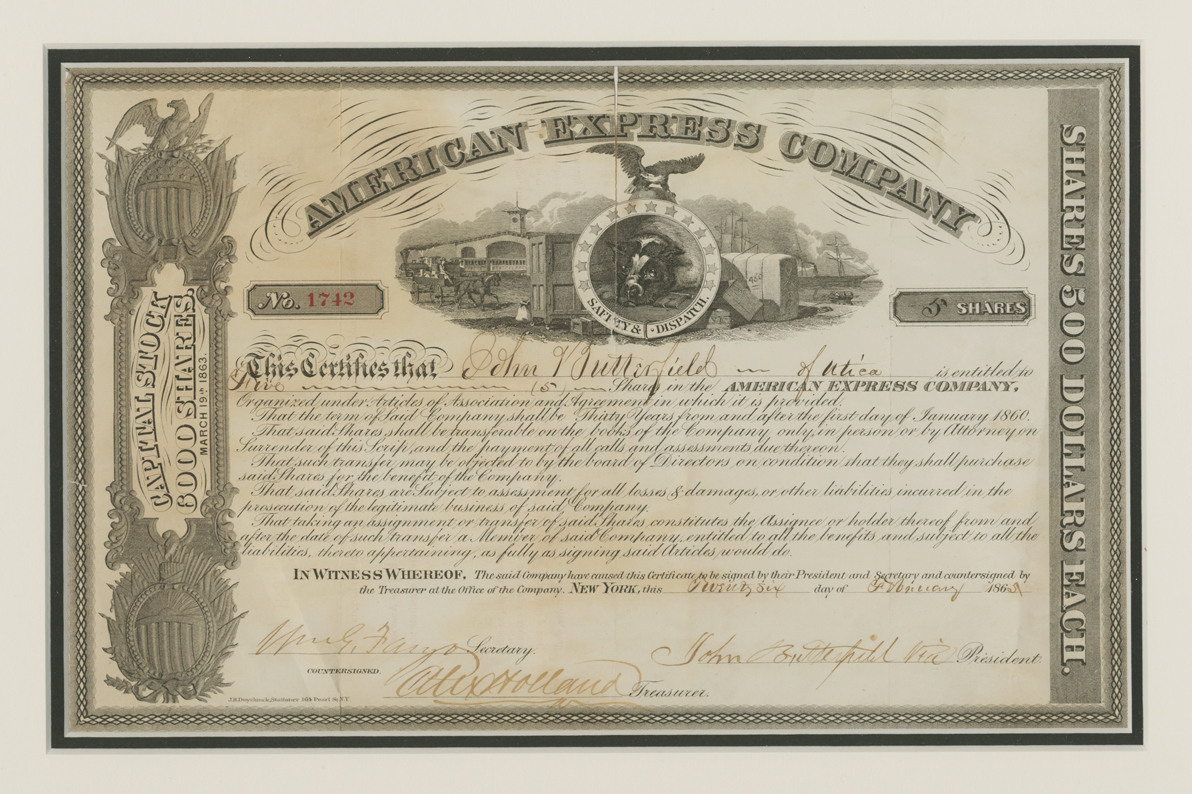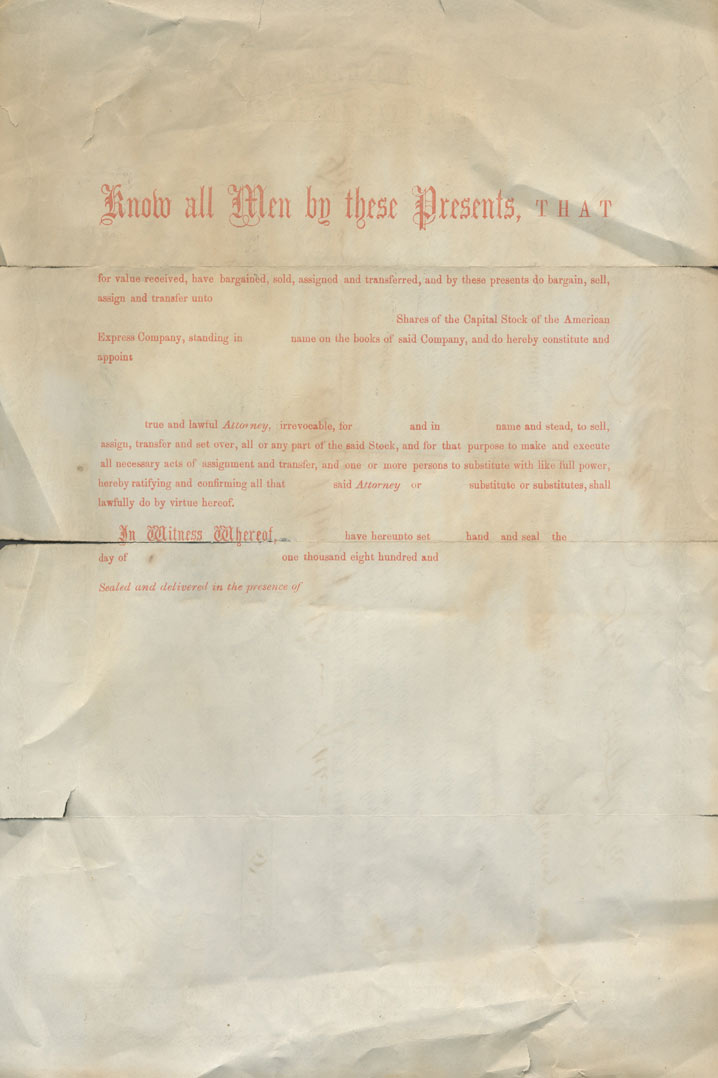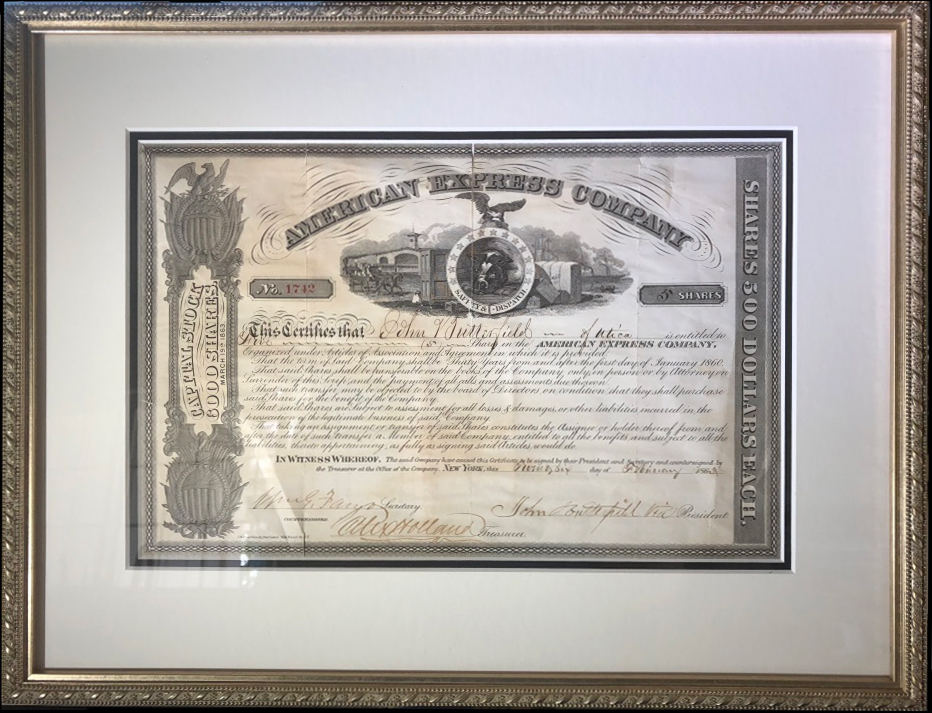William Fargo
William Fargo
William Fargo Signed American Express Stock Certificate - 1865
Uncanceled early original stock certificate #1742 for 5 shares at $500 each (adjusted for inflation, an equivalent value of nearly $5 million today) in the American Express Company, awarded to AMEX co-founder John Butterfield, dated 26 February, 1865—three months before the Civil War ended—and signed by William G. Fargo as president, John Butterfield as secretary, and Alex Holland as treasurer. In good condition with even tears at the three folds to the midpoint, professionally conservation framed.
John Butterfield, a legend in his own right, was the largest operator of stagecoach and freight lines in the mid-19th century in the American Northeast and Southwest. Through shrewd business acumen, he soon controlled most of the stage lines west of New York and in 1849 formed the Butterfield, Wasson & Company. The following year, he merged his company with two rivals, Wells & Company and Livingston, Fargo & Company, to form the American Express Company. In 1868 the company merged with Merchants Union Express Company to become American Merchants Union Express Company. In 1873, the name was changed back to American Express.
With fellow express freight colleague Henry Wells, William Fargo was co-founder of Wells, Fargo & Co. Both men helped organize the American Express Company. Fargo served as the company’s president from 1868 until his death. After the discovery of gold in California, both Wells and Fargo recognized the desperate need of Westerners for expanded banking and express facilities. American Express was happy to stay in the East. So Fargo made his historic decision with Wells to found Wells Fargo & Co.—a company that was soon busy buying gold dust, selling drafts and doing a general banking and express business.
The certificate’s vignette features a dog, the traditional mascot of American Express preceding the centurion.



